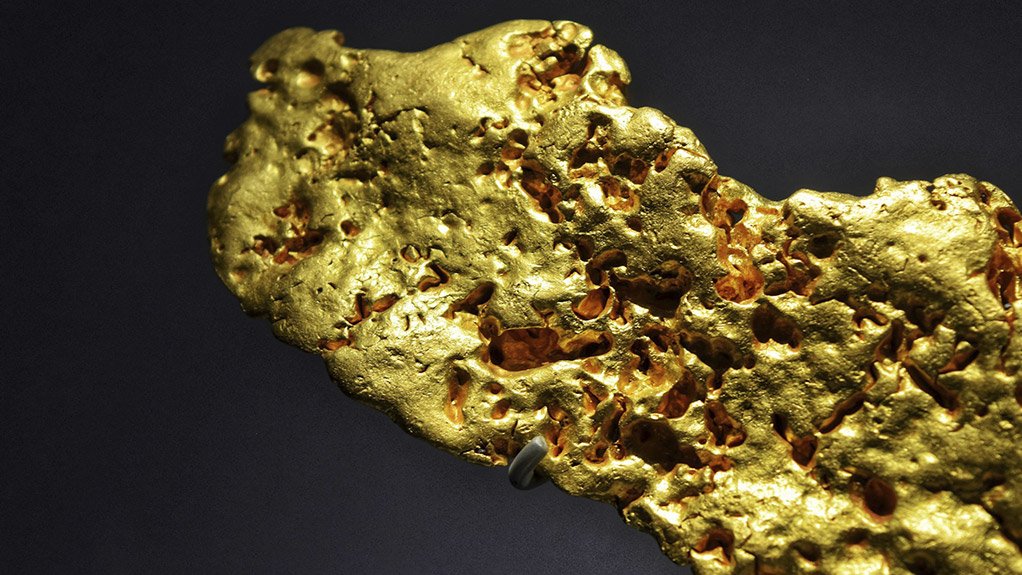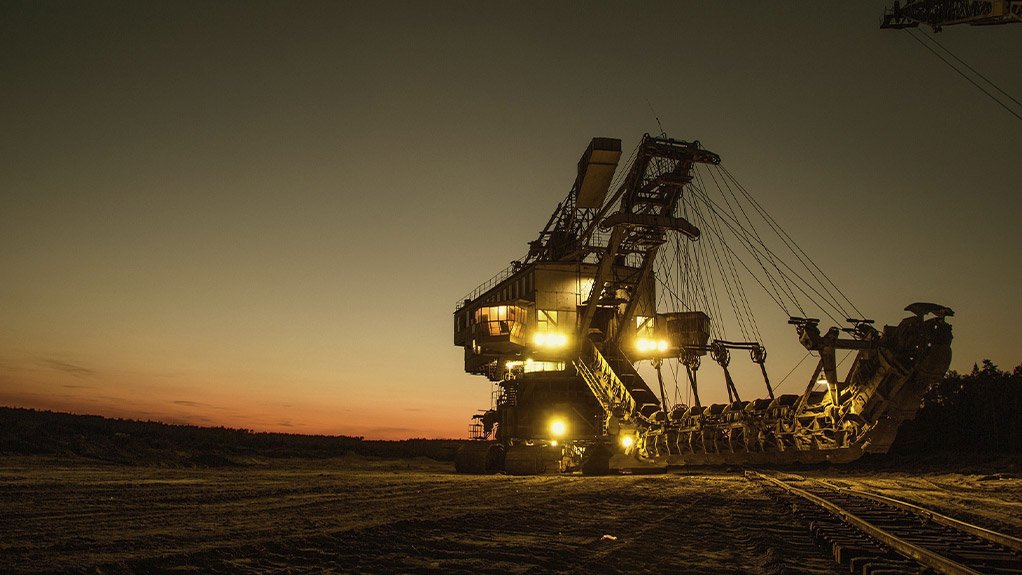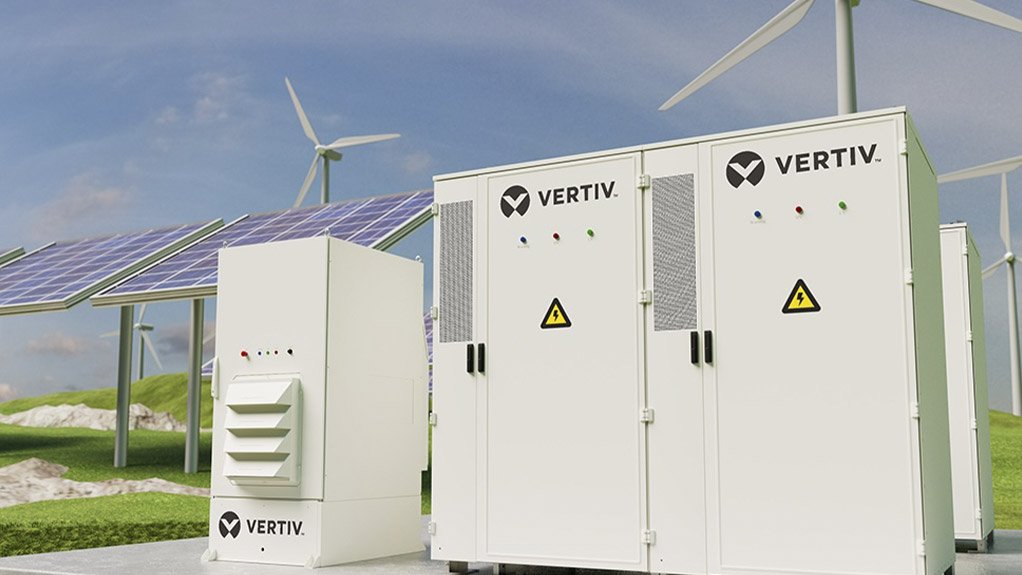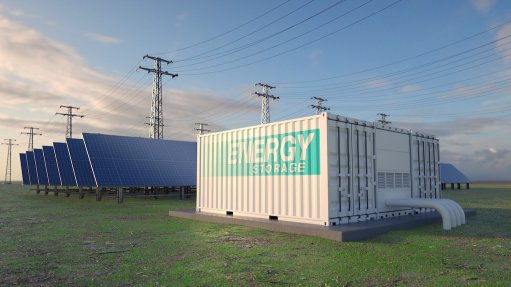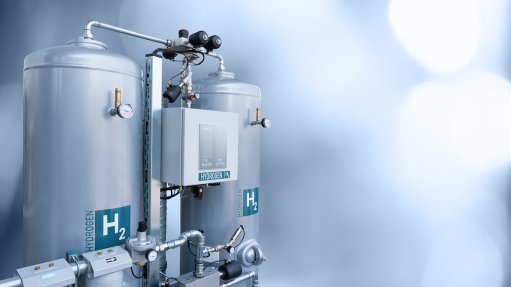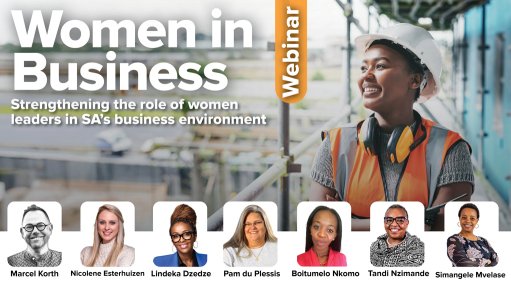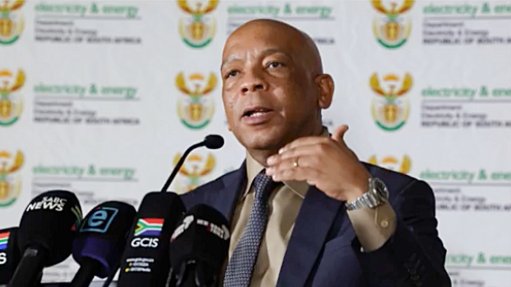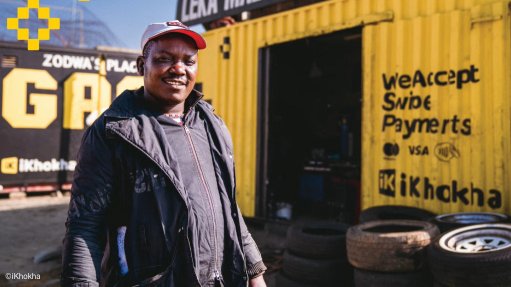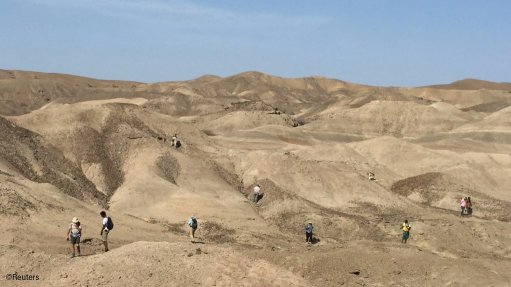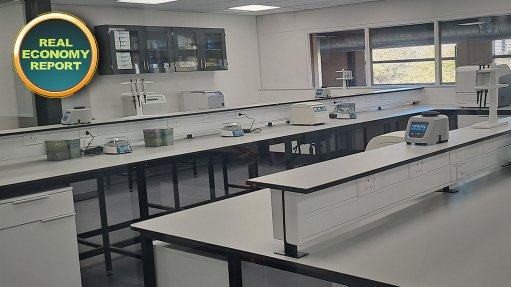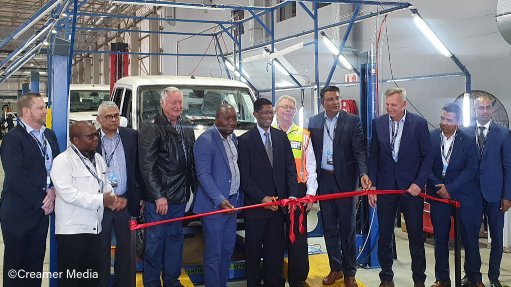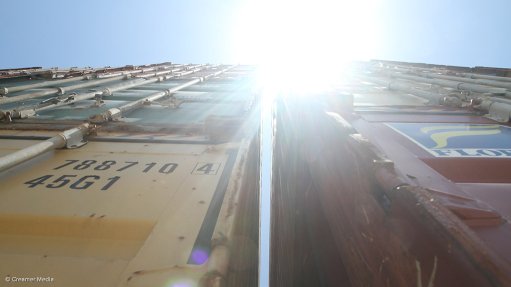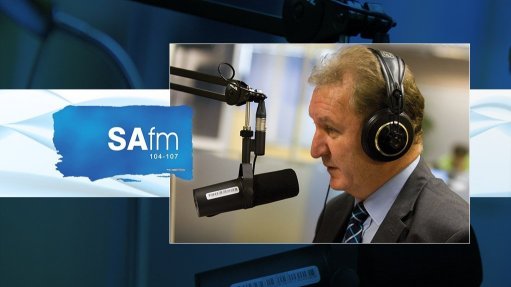Can Battery Energy Storage Systems Help Power the Future of Mining in Africa?
This article has been supplied and will be available for a limited time only on this website.
By: Henry Myburgh - Strategic Account Manager at Vertiv Africa
Mining remains a cornerstone of economic output across many Sub-Saharan African nations, often contributing a substantial share of Gross Domestic Product (GDP). As the global energy transition accelerates, the demand for critical minerals - such as cobalt, lithium and copper - is placing Africa’s mineral wealth under renewed strategic focus. To capitalise on this shift, many countries are intensifying efforts to modernise and extend their mining value chains, leveraging targeted investments in infrastructure, energy and technology to drive industrial growth and long-term sustainable development[1].
According to a leading Africa-focused investment conference, AFSIC - Investing in Africa, some of the biggest issues facing mines across the continent include infrastructure challenges around energy supply[2] (which includes issues of quality, reliability and availability). Additionally, AFSIC notes that increasing demands from both environmental regulations and corporate sustainability targets mean that mining companies must reduce both operational costs and environmental impact while also maintaining production levels.
Against this background, the African mining industry is beginning to explore the viability of battery energy storage systems (BESS) as a potential solution to chronic power supply challenges.
We unpack the advantages of BESS technology after first looking at the current and future importance of mining across the continent.
Mining Across Africa: A Strong History
Mining plays a significant role in many African countries, with some nations showing potential that is not yet fully tapped. A snapshot of mining within the West, East and Southern African regions showcases a number of examples, as outlined by Energy Capital & Power (ECP), an Africa-focused investment platform for the energy sector, as well as other sources.
West Africa:
Mali: The country’s mining sector is experiencing a surge in investment, with mining expected to contribute approximately $1.2 billion to the country’s economy for the first quarter of 2025, partly as a result of significant reforms undertaken during 2023. As Africa’s second largest gold supplier and an emerging lithium provider, Mali continues to liaise with global investors while expanding exploration projects.
Ghana: According to travel platform Tourispot Ghana, gold mining has become one of the most vital sectors for Ghana’s export revenue, with exports from gold in recent years accounting for up to 36 percent (2021) of the country’s total exports, a figure that remained steady at 34 percent as recently as 2023. The gold sector adds to export revenues and plays a significant role in overall economic growth, providing employment for thousands of Ghanaians and supporting local businesses related to mining activities.
Over and above gold, as noted by ECP, other minerals such as manganese, bauxite (the primary ore used to produce aluminium) and diamonds also generate substantial revenue for the economy.
East and Central Africa:
There is significant mining potential in this region, which is diverse in minerals but faced with challenges that have an impact on the sector. These include a lack of capital and technology, and conflicts within the region, including in the Democratic Republic of Congo (DRC), which, as outlined by CNN, has grappled with civil conflict and war for decades.
Nonetheless, Reuters news agency reported that the country has recently become the world’s second-largest copper producer (behind Chile in South America).
Tanzania has also seen recent and rising success in the mining sector, reaching a 10.1 percent GDP contribution in 2024, and becoming the fourth-largest gold producer in Africa (after South Africa, Ghana and Mali), as reported by the Tanzania Investing and Consultant Group.
Southern Africa (SADC region):
South Africa: We find that the country’s mining industry, by generating R424.6 billion in national revenue in 2023, increased the country’s GDP by 6.2 percent[3]. The mining industry furthermore provided nearly half a million (477,000) formal jobs, with some 7,500 jobs supplementing the economy in that year and thus supporting livelihoods against the background of a weak domestic economy. Efforts are underway to unlock further potential in the mining industry by addressing initiatives such as improvements in private sector participation in energy and transport.
Zambia: Mining plays a critical role in Zambia, adding around 15 percent to GDP, 70 percent of export earnings, and 44 percent of government revenues, as analysed by a recent World Bank report. Since 2022, several international mining companies have announced new investments in the country.
The rise of renewable energy technologies has also brought with it an escalating global demand for certain metals and minerals, many of which are to be found in abundance within Africa.
It is therefore in the continent’s best interests to find solutions for energy and infrastructure challenges. While regulations remain the ambit of the sovereign nations themselves, Vertiv is strongly positioned to offer power solutions to mining operations across Africa.
Looking Ahead: Mining Takes on Even More Significance
Because renewable energy technologies require copper, worldwide demand for this element is projected to surge to over 30 million tonnes by the end of the decade, with a growth in the global copper market of around 70 percent predicted between 2020 and 2050[4].
Zambia’s Copperbelt and North-Western provinces are part of the world’s richest source of known reserves and estimated future discoveries. Cobalt, lithium and nickel are also important in the alternative energy transition, playing crucial parts in electric batteries and vehicles, as well as in solar panels, turbines and energy storage.
BESS: A Game-Changer in Remote Mining
Mining requires a dependable and constant electricity supply to power its energy-hungry operations - power costs represent up to 40 per cent of operating expenses in African mines[5] - and support the safety of its workers. An investment in backup energy is critical.
However, diesel generators are expensive to run and maintain, as well as being serious sources of pollution in a world that is increasingly aware of the growing fragility of the Earth. Investing in energy storage is therefore the way of the future, both economically as well as environmentally.
A battery energy storage system (BESS) stores energy for later use. Vertiv's BESS solutions are starting to demonstrate success in remote African mining operations, providing crucial support during grid fluctuations, and helping to manage unpredictable power supplies and grid stabilisation.
Vertiv BESS solutions are able to charge from the grid or other forms of local generation, including wind, hydro, solar and generators. Through the use of BESS technology, mines can store excess energy during periods of low demand.
Large banks of batteries are charged with surplus energy and then discharged when needed. This stored energy can be used to supplement power supply during peak operating periods or when there are power cuts, something that is particularly useful for mines operating in remote locations with less reliable infrastructure.
This means that a BESS solution fills in as an emergency power source, supporting crucial safety systems, ventilation and other essential machinery can remain operational.
BESS installations are also designed to integrate easily with renewable energy generation in the form of solar panels or wind turbines. This supports sustainability practices by decreasing reliance on a coal-powered national grid, or on expensive and polluting diesel generators. At the same time, a reduction in diesel usage and maintenance costs saves significantly on costs.
By addressing unreliable power supply, inconsistent feeds, irregular harmonic distortion, high costs, environmental pressures and infrastructure challenges within the mining environment, Vertiv’s BESS solutions could be a proverbial ‘game changer’ in helping to transform Africa’s energy landscape.
Vertiv, a global leader in critical digital infrastructure, is proud to be a bronze sponsor of the upcoming C&I Energy & Storage Summit Zambia 2025, where the organisation will feature its battery energy storage system (BESS) for mining, data centres and critical infrastructure applications, Vertiv™ EnergyCore Grid. The event will take place on 27 to 28 August at The Pamodzi Hotel in Lusaka.
Comments
Press Office
Announcements
What's On
Subscribe to improve your user experience...
Option 1 (equivalent of R125 a month):
Receive a weekly copy of Creamer Media's Engineering News & Mining Weekly magazine
(print copy for those in South Africa and e-magazine for those outside of South Africa)
Receive daily email newsletters
Access to full search results
Access archive of magazine back copies
Access to Projects in Progress
Access to ONE Research Report of your choice in PDF format
Option 2 (equivalent of R375 a month):
All benefits from Option 1
PLUS
Access to Creamer Media's Research Channel Africa for ALL Research Reports, in PDF format, on various industrial and mining sectors
including Electricity; Water; Energy Transition; Hydrogen; Roads, Rail and Ports; Coal; Gold; Platinum; Battery Metals; etc.
Already a subscriber?
Forgotten your password?
Receive weekly copy of Creamer Media's Engineering News & Mining Weekly magazine (print copy for those in South Africa and e-magazine for those outside of South Africa)
➕
Recieve daily email newsletters
➕
Access to full search results
➕
Access archive of magazine back copies
➕
Access to Projects in Progress
➕
Access to ONE Research Report of your choice in PDF format
RESEARCH CHANNEL AFRICA
R4500 (equivalent of R375 a month)
SUBSCRIBEAll benefits from Option 1
➕
Access to Creamer Media's Research Channel Africa for ALL Research Reports on various industrial and mining sectors, in PDF format, including on:
Electricity
➕
Water
➕
Energy Transition
➕
Hydrogen
➕
Roads, Rail and Ports
➕
Coal
➕
Gold
➕
Platinum
➕
Battery Metals
➕
etc.
Receive all benefits from Option 1 or Option 2 delivered to numerous people at your company
➕
Multiple User names and Passwords for simultaneous log-ins
➕
Intranet integration access to all in your organisation




